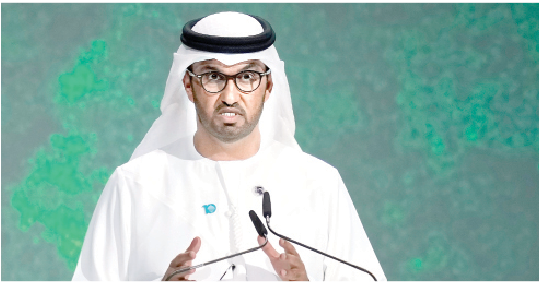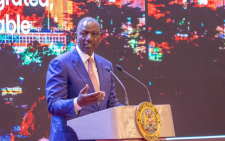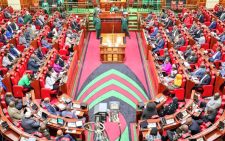Activists fault Dubai climate meeting accord on fossil fuels

As the Global climate talks in Dubai come to an end, the majority of the observers are skeptical on the outcome of this year’s discussions at COP28.
The observers say they were hopeful that the United Arab Emirates meeting would be historic by putting in writing the urgency of phasing out production and consumption of fossil fuels.
However, according to a negotiation draft released on Monday evening, the negotiators seem to have settled on “reducing” instead of “phasing out” of fossil fuels.
The draft called for countries to reduce “consumption and production of fossil fuels, in a just, orderly and equitable manner”.
If the draft is passed as it is, it will mean that fossil fuel companies will continue to produce these non-renewable energies without care of the damage it will cause to the already damaged earth.
This decision will also be against the Paris Agreement which was to oversee phasing out of these energies so as to reduce global warming to 1.5 degrees Celsius by 2030.
However, with the Monday negotiations, climate activists and observers say it does not show the urgency of abandoning fossil fuels and transitioning to renewable energies.
No targets
Romain Loulalen of Global Policy Campaign manager at Oil Change International terms the draft as vague, with zero goal of achieving the target of keeping global warming below 1.5 degrees.
“The draft seem to make the fossil fuel industry happy more than the communities that suffer the consequences of consumption of these non-renewable energies.
“The draft is very vague and gives each country the option of doing whatever they want to do at whatever time they want, while some will be working to transitioning to green energies, some will still be producing and consuming the fossil fuels,” he says.
Romain says they were hopeful that discussions will put on paper the plan of fully abandoning these energies but the draft does not give specifics on the issue.
He says the draft mentions reducing production and consumption of fossils but does not state when such a target should be achieved and how it should be achieved.
“Science shows phasing out fossils will limit global warming by reducing 43 per cent of emissions by 2030. This is the best solution to this crisis but the current draft does not show the urgency of achieving this goal,” he noted.
Observers further say the draft categorises some energies from fossil fuel as renewable energies, making an impression that countries are safe to implement.
Romain said technologies such as blue hydrogen cannot be categorized as renewable energy since it’s a product of non-renewable energy, and therefore there is need for negotiators to refine the text.
“Another major issue is that African nations have not opposed transition, but they need financial support to do so. But where is the money to do that? We need a clear direction of where all this will be coming from,” he said.
Dr Stephen Cornelius, Deputy global leader and innovation lead of climate and energy at WWF says years to come, the Dubai meeting will be perceived as a missed opportunity due to its failure to make proper decisions on phasing out of fossil fuels.
“The adoption and operationalisation of loss and damage funds on the first day set a precedent and hopes for good discussions. But that is not the only thing we wanted to see.
“We wanted clear guidelines on how to deal with the root cause of the climate change crisis which is production and consumption of fossil fuels,” he said.
By phasing out fossil fuels, it will eminently cut finances channeled towards adaptation or even loss and damage fund, since the crisis would have been dealt with at the root cause.
There have been concerns that the presence of more than 100 delegates representing the fossil fuel industry has contributed to the drafting of one of the most controversial drafts to ever come from such a climate meeting.
Few days ago, a letter allegedly from the head of OPEC, the powerful oil cartel emerged, reportedly written to its member countries urging them to block any language to phase out or phase down fossil fuels, a letter that is believed to have resulted in the draft.








